It almost didn’t happen. The EXPLORE Act—a landmark piece of legislation aimed at expanding and protecting outdoor recreation (including hiking, biking, camping, climbing, hunting, and fishing) on federal lands—was hanging in the balance. And it’s a story that most climbers, photographers, and filmmakers probably don’t even know.
I had drinks recently with my Tahoe friends Tommy and Becca Caldwell, ChrisMcNamara, and our mutual visiting friends from Colorado, Erik Murdock, deputy director of the Access Fund and his wife Estee. Over a beer, Erik told us just how close this bill came to not passing.
It took the behind-the-scenes efforts of two great climbers from Fayetteville, West Virginia, who stepped up.
Gene and Maura Kistler, local climbing community pillars, ended up making a difference. In early 2024, with the help of the Access Fund, the Kistlers got a Capitol Hill meeting with their U.S. senator, Joe Manchin, the infamous moderate swing vote. The Kistlers conveyed their love for climbing in the New River Gorge—and by extension, how important it is to have access to outdoor spaces—and I think their passion and authenticity really left an impression on Manchin. The three hit it off, and by the end of their conversation, the Kisslers walked away with Manchin’s personal cell number.
The night before Congress’ final legislative days of 2024, Erik said it was all hands on deck. The EXPLORE Act had yet to pass and it was looking grim. He reached out to the Kistlers and encouraged them to send a simple but powerful text: urging Manchin to push the the EXPLORE Act forward.
That day, Congress was mired in its usual squabbles over budgets and defense spending, and it looked as though the EXPLORE Act might meet the fate of so much legislation and never cross over the finish line. Just days from retiring from the US Senate, Manchin was looking for a final win.
With the Kistlers’ message in the back of his mind, he stood up and gave a rousing speech before his Senate colleagues, imploring them to come together around something everyone in the room could agree on: outdoor recreation. Texas Senator Ted Cruz stood up to seemingly oppose the bill, but backed down off his hawkish soap box and agreed that Congress should send the EXPLORE Act to President Biden to be signed into law.
A rare bipartisan victory, made possible, in part, by two passionate climbers who cared enough to show up.
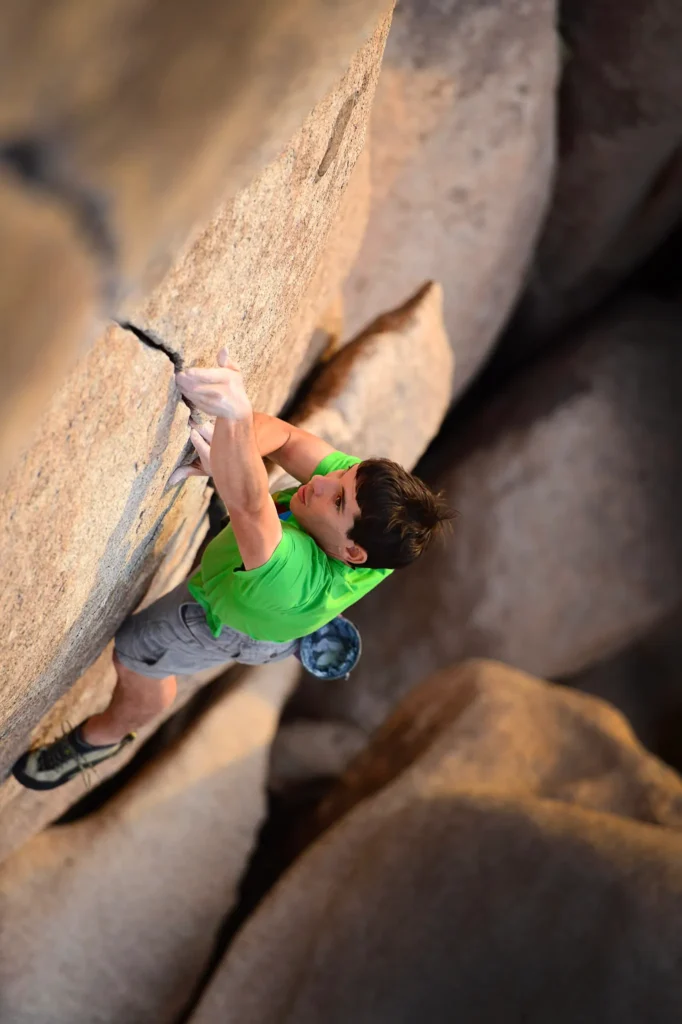

Photographing the one and only Alex Honnold for a Nikon campaign in Joshua Tree National Park.
The FILM Act
The EXPLORE Act is a massive win for outdoor enthusiasts, streamlining access and funding for public lands, improving recreation infrastructure, and preserving outdoor spaces for future generations—and most importantly for climbers, grandfathering all climbing routes established before January 4, 2025 and enshrining the appropriate nature of fixed anchors, including their placement and maintenance, on all federal Wilderness lands.
But for us photographers and filmmakers, one provision, the FILM Act, stands out: easing permit requirements for filming on federal public lands. From National Parks to federal Wilderness, if you’re a small footprint crew of six or less, no matter what it’s for, you will likely no longer need to acquire a permit to film and photograph on public land.
For years, the outdoor film community has fought against outdated and burdensome regulations that made it difficult for independent creators to legally capture footage on public lands. Previously, even a one-person shoot with a mirrorless camera technically required a permit—subject to arbitrary fees and restrictions that made no sense. The rules were inconsistently enforced, leaving filmmakers and photographers vulnerable to fines while major productions with deep pockets could easily navigate the bureaucracy.
With the EXPLORE Act, that all changes. Filmmakers and photographers can now shoot on public lands much more freely, without having to jump through hoops or worry about unpredictable permitting processes. Whether you’re capturing a sunrise timelapse in Wilderness, or documenting a big-wall ascent in Yosemite, or filming a solo adventure in the Grand Canyon, you no longer need to seek government permission just to tell your story.



Filming and photographing a climbing expedition through the Grand Canyon with Tommy Caldwell, Beth Rodden, Josh Lowell, Pete Mortimer, and Chris McNamara.
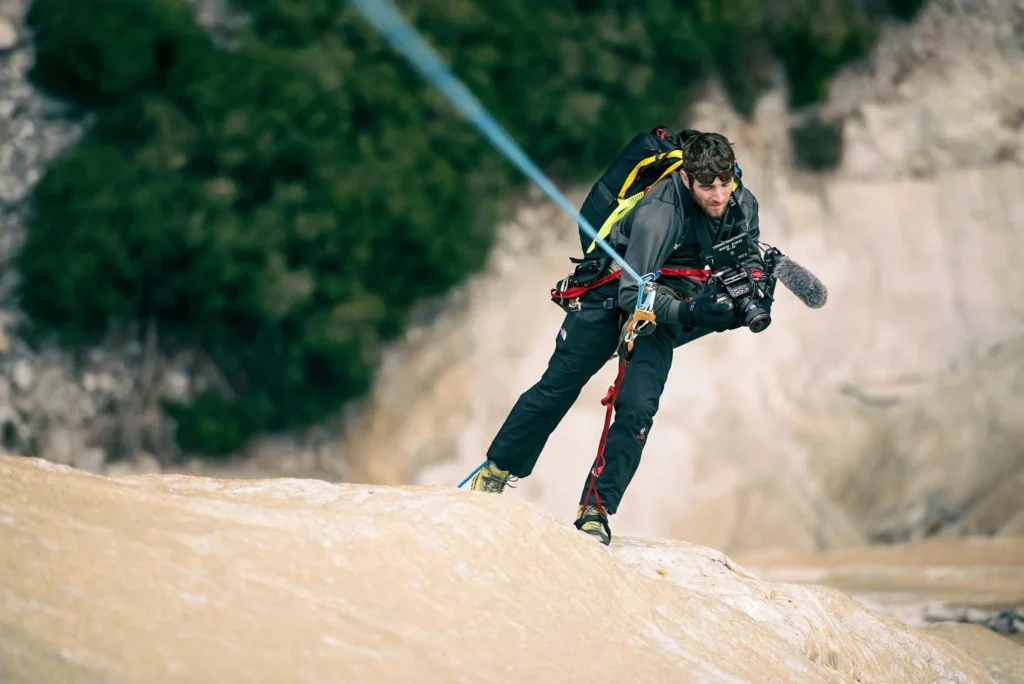

Shooting alongside Brett Lowell and Renan Ozturk up on the Big Stone
Why This Matters
For those of us who work in outdoor media, this is one of the biggest legislative wins in recent memory. It levels the playing field, ensuring that independent creators have the same access to public lands as large production studios. It removes unnecessary red tape that stifled creativity and discouraged filmmakers from working in the very landscapes we aim to celebrate.
It also reinforces a fundamental truth: our public lands belong to all of us. They are meant to be explored, enjoyed, and yes—documented. The ability to share the beauty, challenges, and triumphs of outdoor adventure without the barrier of a permit system means more stories, more voices, and ultimately, a stronger connection between people and the wild places we cherish.
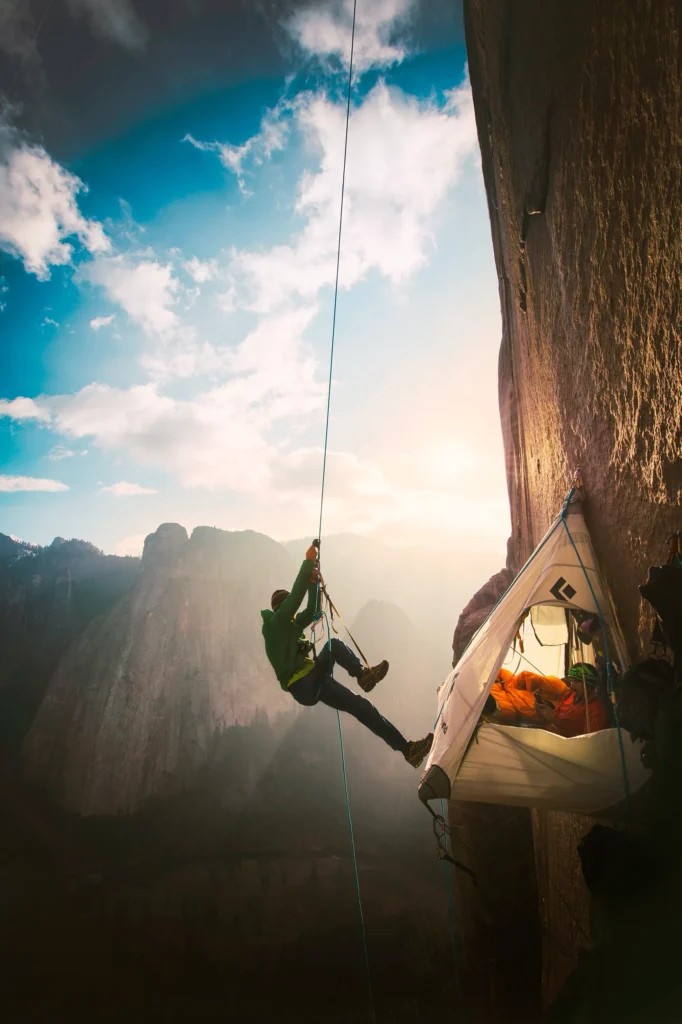
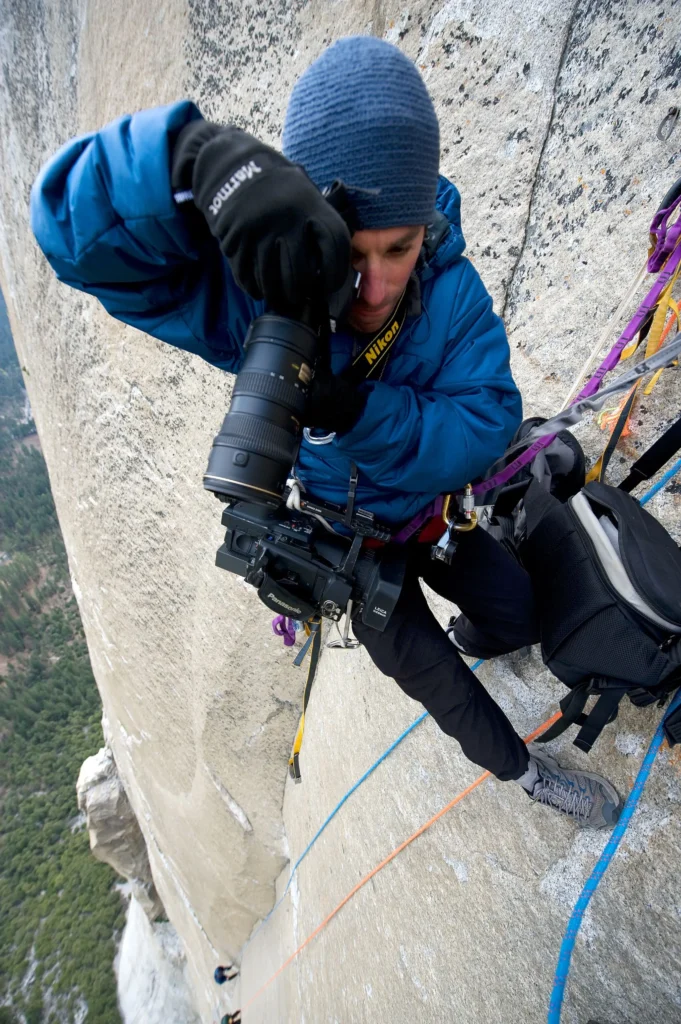

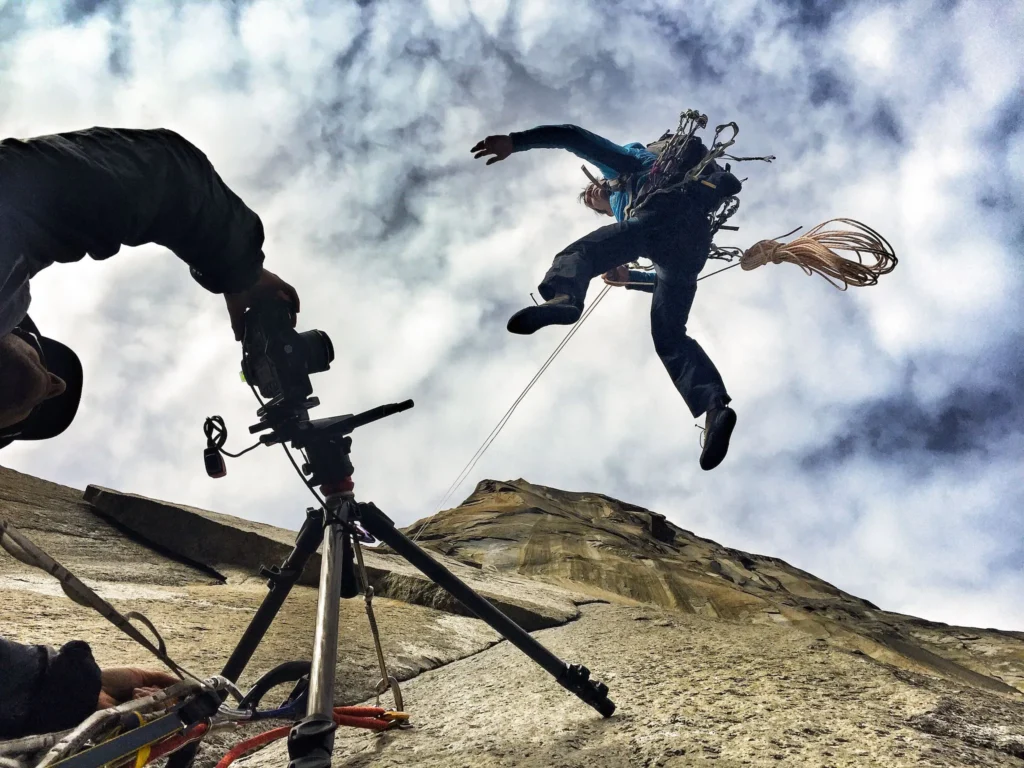
Here’s to the Access Fund and Advocacy
The passage of the EXPLORE Act is a testament to what can happen when individuals step up and make their voices heard. The PARC act—the Protect America’s Rock Climbing act—which is part of the broader EXPLORE Act, enshrines climbing access and protections for decades and that work was the result of the Access Fund, an organization every climber should support with a regular contribution. Especially today, we should remember the power that individuals have. Gene and Maura Kistler didn’t have special political connections or deep lobbying experience. They were climbers who cared, and they took the time to engage with their senator. Their conversation—followed by one timely text—helped push this bill over the finish line.
It’s a reminder that the outdoor community has real influence when we use it. Whether it’s advocating for access, conservation, or commonsense reforms like eliminating film permits, we have the power to shape the policies that govern our public lands. And in this case, the result is a massive victory for outdoor storytellers everywhere.
So grab your camera, hit the trail—or the wall—and capture the wild. You don’t need a permit anymore.
Once again, a huge thanks to the tireless work of Erik Murdoch and the Access Fund, Gene and Maura Kistler, and everyone else who helped achieve this milestone!
